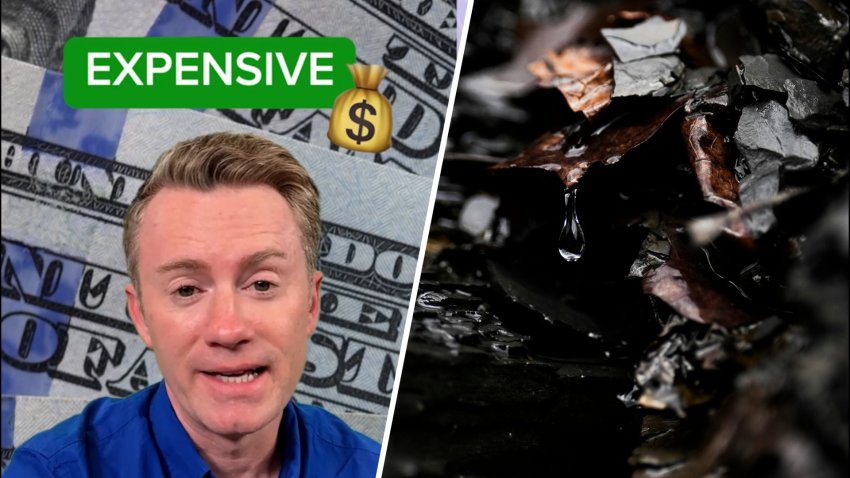-

Watch: Court ruling a victory for clean energy
A federal court has given a temporary victory for proponents of clean energy after the EPA tried to withhold $20 billion for programs for nonprofits. One group’s executive tells more.
-

Watch: 49ers players go green during Earth Month
It’s Earth Month, and while the San Francisco 49ers are still sporting their red and gold, some players are going green. They teamed up with volunteers from the Cadence Giving Foundation in San Jose.
-

Green isn't always good — especially in Antarctica
The coldest parts of our planet act like giant mirrors, reflecting the sun’s energy back to space. What happens when algae and pollution cover snow and ice? National climate reporter Chase Cain explains the ripple effects from Antarctica.
-

Watch: City to honor East San Jose students for clean-air project
A group of East San Jose students will be honored by the city Tuesday for their work to bring cleaner air to their community with a mobile plant cart that helps reduce CO2 levels.
-

Climate-resilient corn, wheat, & soybeans could be ‘cash crops' for farmers
At the Salk Institute in San Diego, scientists are using AI to identify roots which will make crops more resilient to drought, floods, and extreme heat. If successful, it could also mean extra revenue for farmers. National climate reporter Chase Cain got an exclusive look inside the high-tech lab.
-

Climate change isn't funny — except in the hands of these comedians
Comedians have long used jokes to raise awareness of serious problems, and many are now turning the gaze to climate change.
-

What does Trump EO on coal mean for energy prices, environment?
NBC National Climate Reporter Chase Cain explains why bringing back coal may raise costs of energy and have a negative effect on our climate.
-

San Jose State uses AI to help students learn about climate change
Professor Eugene Cordero is an experienced scientist who inspires students through hands-on learning that translates to real-world experiences. Meteorologist Vianey Arana reports.
-

April 1 snow survey and reservoir update
Scientists on Tuesday will measure what is commonly known as the peak of the Sierra snowpack.
-

April 1 snow survey and reservoir update
Scientists on Tuesday will measure what is commonly known as the peak of the Sierra snowpack as the region makes a transition into the spring snowmelt.
-

Checking in on California's water supply
Meteorologist Vianey Arana checks in on California’s snow and water supply as we move into the warmer and drier months.
-

Scientists need more public funding to shield farming from climate change
Public funding for agricultural research was already declining. Now Trump has frozen or paused support for a variety of research programs.
-

US states race to attract smaller, cheaper nuclear reactors for AI development
U.S. states are positioning themselves to compete for newer, cheaper nuclear reactors being developed as communities and tech giants compete in a race for electricity.
-

‘The White House Effect' documentary dives into history of global warming
A new documentary takes viewers behind the scenes of the first President George Bush and his administration attempting to enact policies to save the planet. Cinthia Pimentel reports.
-

Scientists warn of severe honey bee losses in 2025
Researchers at Washington State University projected that honey bee colonies in the U.S. could decline by up to 70% this year. Honey bee colonies in the U.S. are projected to decline by up to 70% in 2025, entomologists at Washington State University said on Tuesday. The university said in a press release that in the past decade, honey bee colony losses have...
-

Rise in e-vehicles impacts gas tax revenue
The rise in electric vehicles could be sparking problems for California’s gas tax revenue, and it’s an issue that could trickle down to everyone.
-

What's in store for the Bay Area this spring
The outlook for the rest of spring is trending warmer and drier for the Bay Area, consistent with ongoing changes to our warming climate. Meteorologist Rob Mayeda reports.
-

Underwater robots to the rescue to preserve marine life
A team of marine scientists have put together new technology to restore seagrass, an important climate tool that sequesters carbon and provides nutrients and habitats for marine life. Cinthia Pimentel reports.
-

Up-close look at rapidly melting glaciers from Alaska to Antarctica
Climate scientists and policymakers are gathering at the United Nations headquarters in New York for the inaugural World Day for Glaciers. The gathering aims to build global cooperation to slow climate change. National climate reporter Chase Cain takes us to some of our planet’s fastest melting glaciers.
-

East Bay students connect with Finnish peers to share climate change impacts
East Bay middle schoolers aren’t only learning about climate change in their classrooms, but they’re also learning about how it impacts students around the world from their new friends in Finland. Cinthia Pimentel reports.

